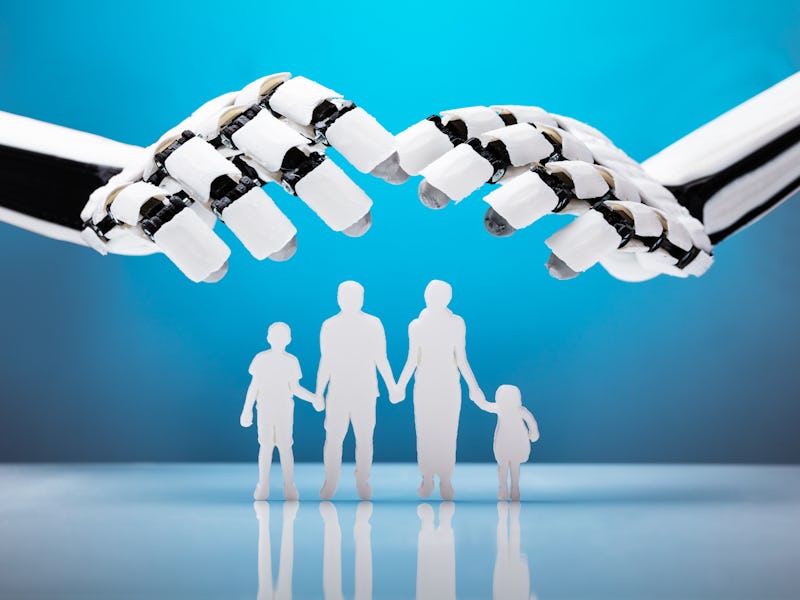Carole Stivers reads an exclusive preview of The Mother Code
In an interview with Inverse, Stivers reveals what genetic modification would help us survive as a human race.

Carole Stivers is a former biochemist and the author of The Mother Code, her debut sci-fi novel set to hit bookshelves August 25. The Mother Code explores the relationship between humans and the machines we create in a dystopian future, and ahead of the book's release, Steven Spielberg’s production company Amblin already purchased the movie rights.
Stivers joins Inverse Happy Hour to read an exclusive chapter from her new novel which she describes as the heart of the story, but not before setting up this post-apocalyptic world:
"The Mother Code begins in 2049 when a bioweapon gone awry puts the survival of the human race at risk. In response, children who are genetically engineered to survive the threat are placed in the care of large-scale robots. The story centers on a boy named Kai, but it also includes others of the children, as well as a group of adult survivors who created them and are now trying to ensure their safety, if only from afar."
During the Q&A, Stivers also recommends Star Trek: Picard along with Westworld Season 3 if you're looking for a “rich and deep” TV-viewing experience, which might be just the escape we're all looking for.
Below are the highlights from Inverse Happy Hour:
Editors note: Stivers is holding the UK version of the book, but you can preorder the US version here.
On the inspiration for her book— “We went on a trip, which involved driving across the desert, and I saw this truck along the side of the road. Somebody had driven this truck into this ravine, and it was just sticking up out of the ground with its rear wheels up, and I thought, wow that looks godforsaken. I mean, the whole terrain we were driving across looked so godforsaken, and I thought, this would be what it would be like after an apocalypse, and my mind started turning.”
“I had thought when I stopped working that I might take up creative writing. I never did it before, really, so I got this idea in my head — it went through many, many iterations; I have drawings and thoughts about this going back to 2004 — and then over the years, it just kind of evolved into the story that it is.”
“In Pacific Rim and things like that, someone can inhabit a machine and, actually, the machine melds with their mind, so that kind of stuck in my mind. I also like the idea of being able to use A.I. to prolong the life of a mind, which is something that happens in my book, because people can’t prolong their own lives. They prolong the life of their minds so that they can then bring up children in a way that is ‘human’ so that they have someone to relate to.”
“Sci-fi in general, for me, has always been a way to look at people in extreme situations. What would they do?”
On a genetic modification that would help us survive as a human race— “I just finished a book called How to Change Your Mind by Michael Pollan, so it was talking about psychedelic research basically. The idea that, you know, psychedelics are supposed to cause us to kind of lose our ego and think more universally and think about ourselves as part of a larger universe. If I was to say what kind of mutation could happen in humans that would make them more adaptable, I would think it would be something like that, where we just are able to drop our egos a little bit and then just relate to other humans and to our surroundings in a more holistic way.”
On what science fiction can offer in a difficult time— “Sci-fi in general, for me, has always been a way to look at people in extreme situations. What would they do? You can put people in really crazy situations and then watch what they do. So, for me, that’s what the draw of sci-fi has always been.”
This interview has been edited and condensed for clarity.
—
A huge thanks to Stivers for joining us!